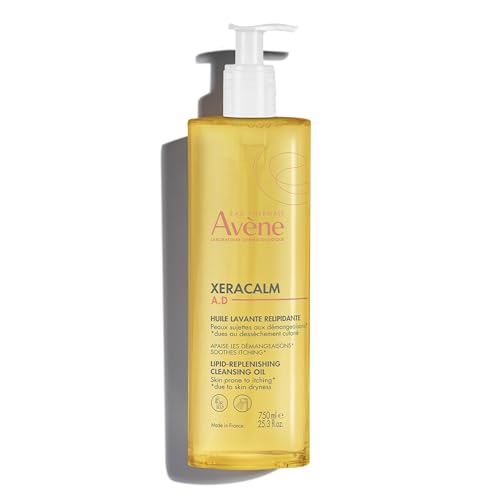Repairing Your Skin Barrier Is the First Step to a Glowy, Bright Complexion
Dermatologists share exactly how to do it.


Select the newsletters you’d like to receive. Then, add your email to sign up.
You are now subscribed
Your newsletter sign-up was successful
Want to add more newsletters?

Delivered daily
Marie Claire Daily
Get exclusive access to fashion and beauty trends, hot-off-the-press celebrity news, and more.

Sent weekly on Saturday
Marie Claire Self Checkout
Exclusive access to expert shopping and styling advice from Nikki Ogunnaike, Marie Claire's editor-in-chief.

Once a week
Maire Claire Face Forward
Insider tips and recommendations for skin, hair, makeup, nails and more from Hannah Baxter, Marie Claire's beauty director.

Once a week
Livingetc
Your shortcut to the now and the next in contemporary home decoration, from designing a fashion-forward kitchen to decoding color schemes, and the latest interiors trends.

Delivered Daily
Homes & Gardens
The ultimate interior design resource from the world's leading experts - discover inspiring decorating ideas, color scheming know-how, garden inspiration and shopping expertise.
There’s been a lot of buzz around the skin barrier recently. The skincare powers that be might have you questioning: Is mine damaged? Am I protecting it and preventing it from becoming damaged? And, frankly, what even is the skin barrier? Well, kind of like a bouncer at a fancy new nightclub, it’s the skin barrier’s job to put up a blockade, not allowing just anyone—errr, anything—in. When that bouncer isn’t doing their job correctly, though, things start to go a little haywire. You get what I'm saying, right?
Essentially, the barrier is your skin’s first line of defense. It’s meant to keep stressors such as irritants, allergens, and bacteria out but let the good ingredients, like water and oil, in. However, an impaired barrier is more lax, meaning it has some holes in it that let the aggressors sneak through and lead to dryness, redness, and overall irritation.
To put things a little more scientifically, I tapped board-certified dermatologists, Heather Rogers, MD, and Corey L. Hartman, MD. They share their insights on all things skin barrier, including how to care for it, prevent it from becoming stressed, and repair it if it’s already damaged. Read on for what to look out for in an impaired skin barrier and the best products to keep yours in check.
What Is the Skin Barrier?
“The skin barrier is the stratum corneum, the outermost layer of the skin,” explains Dr. Hartman. And its job is to keep external stressors, including allergens and bacteria, out. “The skin barrier is a vital component of our skin's health, serving as a protective shield that maintains moisture, blocks absorption of chemicals, and protects from irritation and inflammation,” adds Dr. Rogers.
The skin barrier is physically comprised of three elements: corneocytes, natural moisturizing factors (NMF), and skin biome, says Dr. Rogers. Corneocytes are the dead skin cells on the top layer of the skin, which act as building blocks of the skin barrier. They’re held together by the NMF, which is a combination of ceramides, cholesterol, fatty acids, and filaggrin. “They are crucial for retaining moisture and maintaining skin barrier function,” she points out. Finally, the skin biome is “a delicate balance of microorganisms living symbiotically on our skin,” or the good bugs, if you will. This skin biome helps regulate the skin’s pH, which ideally should be around 5.5, forming an acid mantle that protects against harmful elements, explains Dr. Hartman.
As you can tell, the skin barrier is a pretty complex structure, and because its purpose is to keep the skin functioning optimally, Dr. Hartman points out, “it’s important to keep the skin barrier intact and healthy.”
Is My Skin Barrier Damaged?
Like someone whose facial expressions give their thoughts away, when your skin barrier is stressed out or damaged, there’s no hiding it. A damaged skin barrier will present as dry, dull, flaky, red, inflamed, and/or with an uneven texture rather than smooth. Dr. Hartman says that you might be able to feel it, too, with pain or itchiness and rough patches that may hurt. Just overall, “not healthy,” he says.
Get exclusive access to fashion and beauty trends, hot-off-the-press celebrity news, and more.
“You might find you are breaking out more than normal, or you may feel skin is more sensitive to products you’ve used in the past without issue.” All this to say, if you notice a change in your skin, especially one that isn’t going away or getting worse, that could be a sign that your skin barrier is damaged.
How Did I Damage My Skin Barrier?
- Over-Exfoliating: Dr. Rogers explains that several factors can lead to the skin barrier becoming impaired or damaged, including overwashing, over-exfoliation, and the use of harsh skincare products. Overwashing can strip the skin of its natural oils, increasing its pH and disrupting the skin's biome. At the same time, overexfoliation with the use of physical exfoliants, such as scrubs, tools, or cloths, can damage the corneocytes and NMF, weakening the skin's barrier.
- Irritating Ingredients: As for ingredients that could be to blame? Keep an eye out for skincare formulas that contain alcohol, high concentrations of acids, and even certain fragrances, which can irritate the skin and impair its protective function. She adds that these changes in the skin’s environment “lead to the NMF working less well and it becomes harder for the good microbes to live, leading to the skin shielding becoming less protective and increasing the risk of absorption of chemicals through the skin, which can cause irritation and inflammation.”
- The Weather: The weather and air (artificial and outdoor) can weaken and damage the skin barrier, too, which is why changing your skincare products as the seasons change is recommended. “UV exposure, extreme heat or cold, dry air and wind,” can all damage the skin barrier, adds Dr. Hartman.
If you notice a change in your skin, especially one that isn’t going away or getting worse, that could be a sign that your skin barrier is damaged.
- Age: But external factors and how we treat the skin aren’t the only things posing a threat to the barrier. Age is also a contributor, flags Dr. Hartman. “As we age, our skin barrier ages with us, which makes the barrier overall weaker and over time, less effective in repairing and protecting itself.” This is why it doesn’t hurt to incorporate occlusive moisturizers and gentle skincare formulations, even if you don’t have signs of a damaged barrier.
- Lifestyle: Your lifestyle will play its own role in the health of your skin barrier. “Factors like diet, water intake, and smoking and drinking can also affect the skin barrier,” he says, so although a damaged barrier may present in the health and appearance of the skin, it’s really a whole body issue that requires care and attention to the outside and inside.
How Do I Repair My Skin Barrier?
Repairing a damaged skin barrier will call for a few healthy habits, including using a gentle pH-balanced cleanser and a thick moisturizer, along with making some lifestyle changes, such as incorporating a healthy diet and staying hydrated. “Look for a skin barrier cream with ingredients that nourish and calm the skin, such as squalane, shea butter, niacinamide, or centella asiatica,” recommends Dr. Rogers. Luckily, because the skin barrier is such a hot topic of conversation lately, there are plenty of products that are geared towards barrier repair.
After you wash with a gentle cleanser (with a pH balance of 6 or less), it’s time to apply a barrier cream. “I recommend using the product 1-2 times per day when repairing the barrier and then once a day to maintain barrier health,” instructs Dr. Hartman. Moisturizers that are rich and occlusive, meaning they lock moisture into the skin, and are formulated with humectants like hyaluronic acid and glycerin, will help improve barrier function and are great to use whether you’re experiencing signs of an impaired skin barrier or not.
Dr. Hartman also recommends sticking to the usual guidelines in terms of healthy living: eating a healthy diet, drinking plenty of water, getting seven to eight hours of sleep, not smoking, limiting alcohol intake, and wearing sunscreen daily. Other sneaky culprits to avoid: “products with harsh ingredients like alcohol, don’t exfoliate more than two to three times per week, and take warm, not hot, showers.”
How Long Will It Take My Skin Barrier to Heal?
“It can be anywhere from a week to a few months, depending on the severity of the repair needed,” says Dr. Hartman. Though he assures us that most cases of mild skin barrier repair will resolve within just a couple of weeks. Once your skin barrier is healed, continue treating the barrier with care to keep it functioning optimally for a happy, healthy, and glowing complexion.
What Are the Best Skin Barrier Products?
When it comes down to it, the healthier your skin barrier is, the better your skin will look. By limiting skin barrier-damaging practices and incorporating products like these that support a healthy barrier, your skin will begin to thrive.
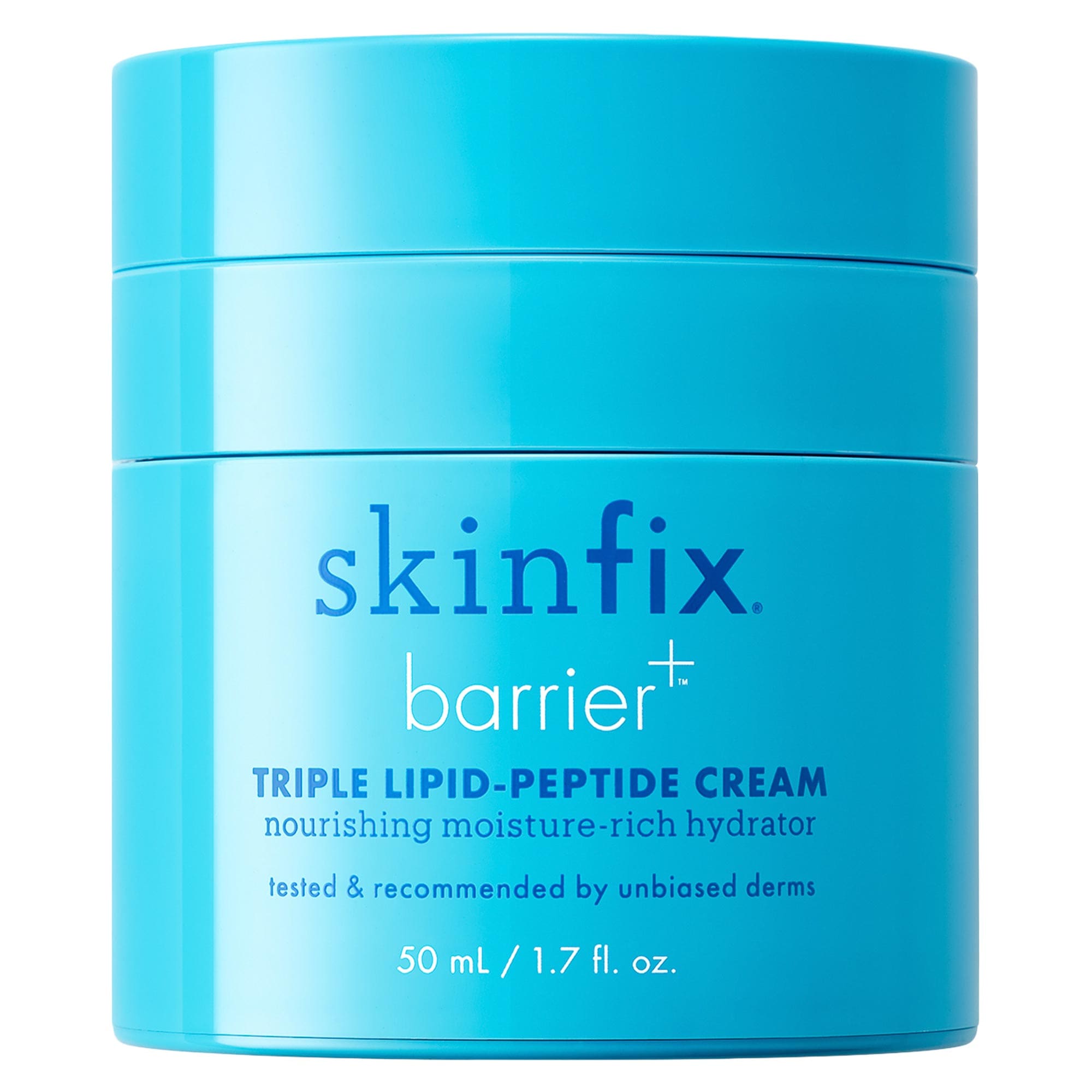
Dr. Hartman says that this formula uses a B-L3 complex, which has been “shown to help restore skin’s moisture barrier quickly for hydrated, radiant, and dewy skin.” Although it’s a rich, moisturizing cream, it’s absorbed quickly and doesn’t feel heavy on the skin.
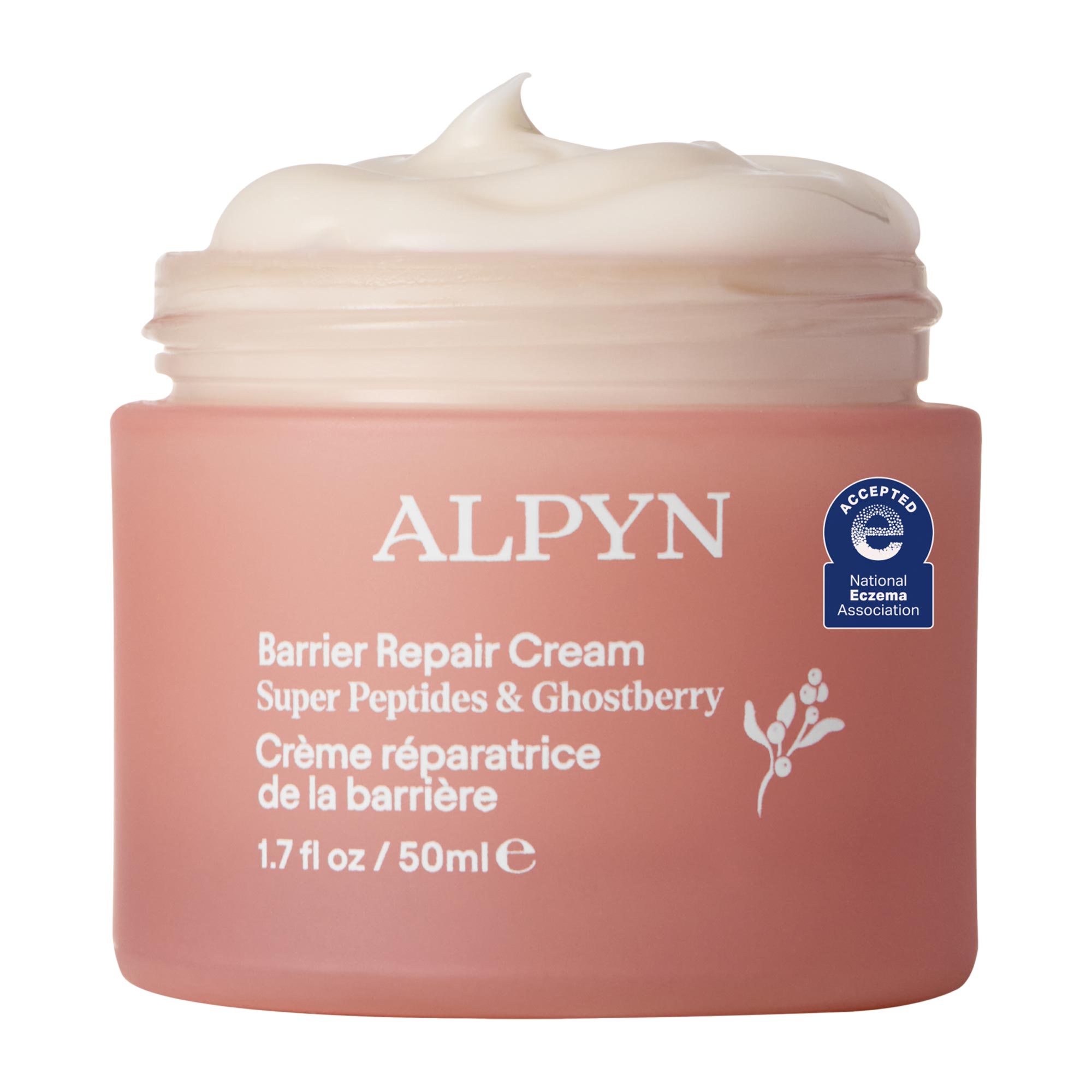
Just because you want to focus on skin barrier health doesn’t mean your other skin concerns need to be neglected. This ceramide-rich cream also packs peptides to address signs of aging, paired with calming and soothing ingredients for a multi-benefit approach.
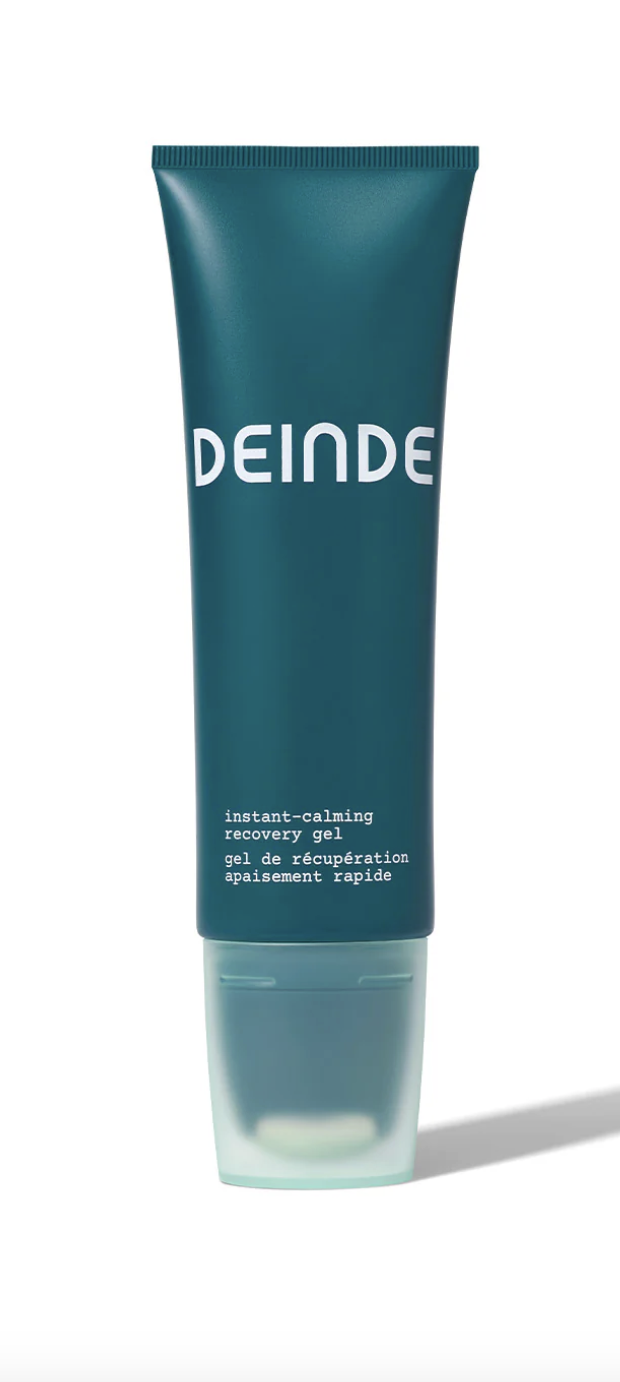
If your skin is actively damaged and in need of some quick relief, this lightweight cooling gel will help to instantly soothe the skin while repairing its protective moisture barrier for a calm, even-toned complexion. “Its formula uses biotech antioxidant DHK, which is found naturally in the resilient prickly pear cactus, and helps calm skin while improving skin’s resilience to external aggressors,” explains Dr. Hartman.
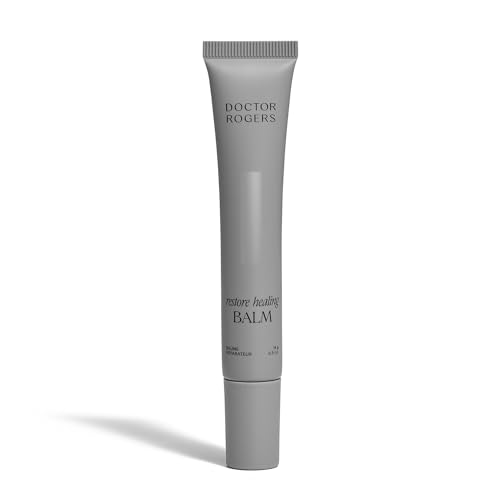
Rich in emollients and humectants, this fragrance-free and hypoallergenic ointment is great to have on hand, especially during flares of irritation or sensitivity. It’s thick and occlusive, and will lock moisture into the skin. You can even use this on top of your moisturizer overnight.
Why Trust Marie Claire
For more than 30 years, Marie Claire has been an internationally recognized destination for news, fashion, and beauty trends, investigative packages, and more. When it comes to the products Marie Claire recommends, we take your faith in us seriously. Every product that we feature comes personally recommended by a Marie Claire writer or editor, or by an expert we’ve spoken to firsthand.
Meet the Experts

Dr. Heather D. Rogers, MD, co-founder of Modern Dermatology, is a nationally acclaimed double board-certified procedural dermatologist and Mohs surgeon. Her first love is practicing medicine – seeing hundreds of patients each week at her Seattle practice – her passion is helping people care for their skin. Whether treating skin cancer or educating patients on the most effective skincare regimens to slow the signs of aging, she is trusted for providing straightforward guidance on how to safely and effectively care for aging skin. After decades of witnessing the pervasive widespread misinformation surrounding skincare and anti-aging procedures, Dr. Rogers emerged as a leading voice of reason in the beauty industry. Through her Instagram, blog, and membership on the American Academy of Dermatology Media Team, she offers counsel based on her extensive clinical experience, scientific data, and patient care – not commissions or paid endorsements. Respected for her objectivity, Dr. Rogers has become a trusted expert both on social media and in the national press. Recent features can be found here. She also sits on the Credo Beauty Council, Sorette Scientific Advisory Board and BeautyCounter Scientific Advisory Board.
Seeking a better solution to the questionable ingredients and unnecessary complexity in skincare, she created Doctor Rogers to meet her rigorous standards. Knowing fewer steps with better ingredients work best for aging skin, her namesake line offers refined skincare with outstanding results. Doctor Rogers is available at doctorrogers.com, Nordstrom, Revolve, Credo Beauty, Dermstore, ShopBop, Amazon, and many medical practices around the country.
A Washington Native, Dr. Rogers is a graduate of Stanford University, the University of Washington School of Medicine, and completed her dermatology residency and fellowships at Columbia University Medical Center. She is a Clinical Assistant Professor at the University of Washington Division of Dermatology and lectures regularly on skincare, aesthetics, surgery, and improving patient outcomes. She won the Iron Surgeon Competition for Best Cosmetic Dermatologist at the American Society of Dermatologic Surgery in 2023. She is fortunate to be perennially listed as a Top Doctor in Seattle and Top 5% Most Awarded Physicians in the US.

Corey L. Hartman, MD, is the founder and medical director of Skin Wellness Dermatology in Birmingham, Alabama. He is Assistant Clinical Professor of Dermatology at the University of Alabama School of Medicine. A native of New Orleans, Dr. Hartman attended Emory University graduating with a Bachelor of Arts in Psychology. After earning a doctorate of medicine from Meharry Medical College in Nashville, Tennessee, he completed an internship in Internal Medicine at Tulane University Medical Center and a residency in Dermatology at the University of Alabama School of Medicine. Dr. Hartman is certified by the American Board of Dermatology and is a fellow of the American Academy of Dermatology and the American Society for Dermatologic Surgery.
During his training, Dr. Hartman traveled to study at UCLA and Howard University, where he was an apprentice with experts in cosmetic procedures for all skin types. This knowledge has provided the basis for expertise in tailoring dermatologic surgery and cosmetic procedures that are safe and effective for patients from many diverse backgrounds.

Lisa DeSantis is a beauty and wellness writer, editor, brand consultant, and content creator with over a decade of experience in print and digital media.
Previously, Lisa was the Deputy Beauty Director at Health and Real Simple magazines. She has written for Allure, Byrdie, Glamour, Women's Health, Cosmopolitan, Well & Good, and Motherly. Lisa has also appeared on Good Morning America and The Today Show as a beauty expert. She lives in Nashville, Tennessee, where she also teaches pilates and spends her free time searching for the best matcha.
